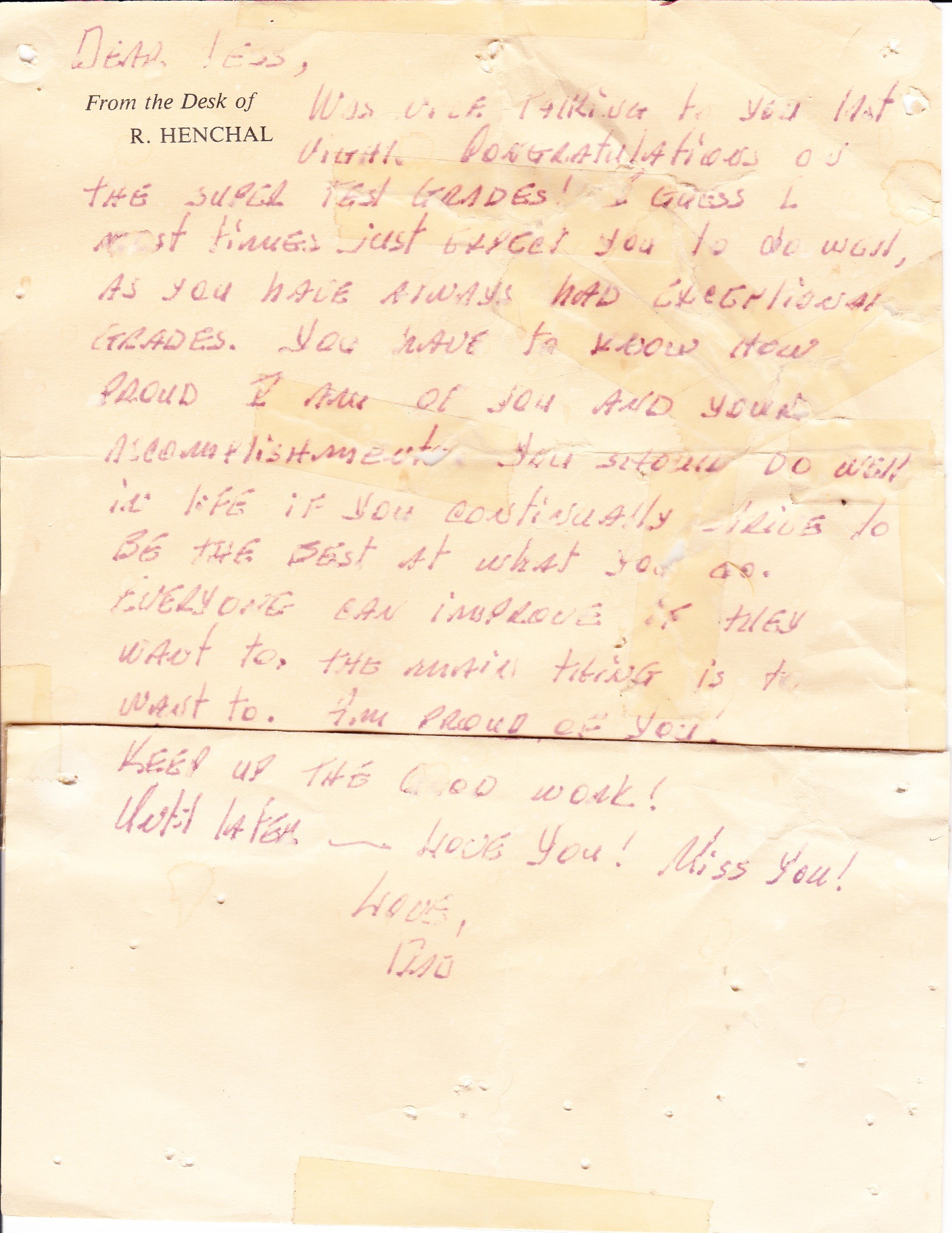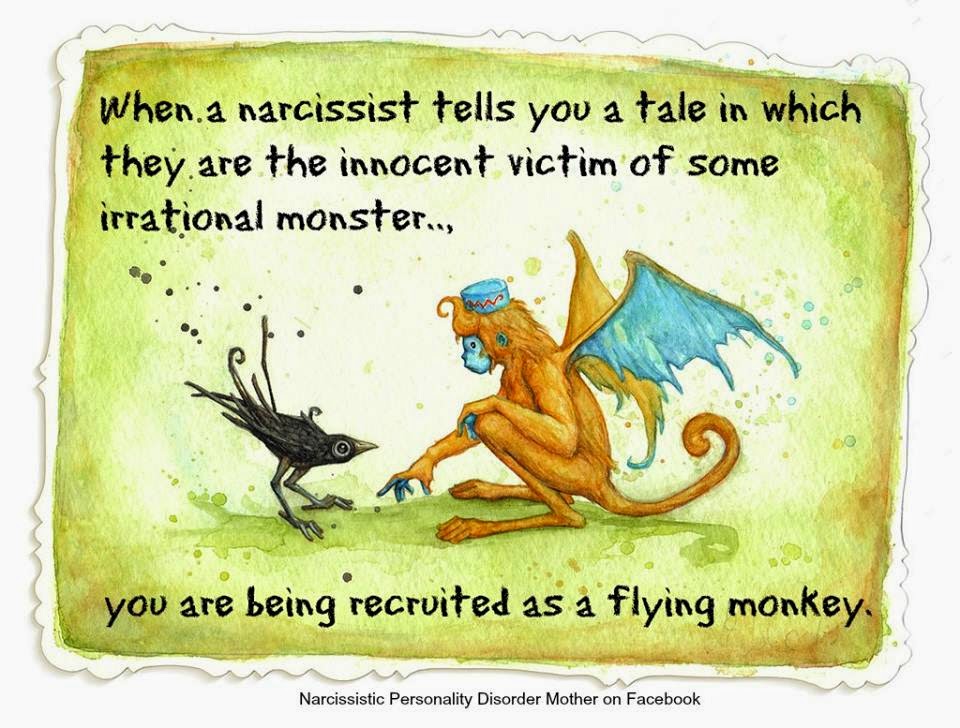Once again, a paraphrase of Seth Godin:
The pedant (that’s what we call someone who is pedantic, a picker of nits, eager to find the little thing that’s wrong or out of place) is afraid.
He’s afraid and he’s projecting his fear on you, the person who did something, who shipped something, who stood up and said, “here, I made this.”
My version:
The narcissist, who finds criticism in every little remark, who is eager to find you to be wrong or out of place, is afraid. (And her flying monkeys, too.)
They are afraid and they are projecting their fear on you, the person who stood up and said, “hey, you are treating me badly, and I don’t like it.”
What are they afraid of? What is there about doing the right thing, about establishing healthy boundaries and respecting them, about treating me as an equal instead of making me the scapegoat, that is so scary?
In my family’s case, I think the fear is that if Susan is held accountable for her actions, and Joe as well, that they will throw a fit of some kind, and refuse to participate in family activities.
This will upset my sister, with whom Susan has cultivated a strong friendship. I think they probably understand each other very well. Susan has a habit of sucking up to the person perceived to be “in charge” in any situation, perhaps with the idea that they will then protect her in the event of any conflict.
In the case of our family, that person is my sister. She and she alone has the power to decree where and when the family will get together. In the past, I have suggested that we take turns hosting the annual reunion, and I have suggested other activities — including a conversation about us all doing something for my 40th birthday — all of which have simply been ignored. I have attended, sometimes by plane, at least 5 different milestone birthday celebrations for The Triumvirate — but don’t even think about anyone gathering to celebrate one of my birthdays. I’m not supposed to ask for things like that.
Some pigs are more equal than others.
It’s easy to see this. My sister will be terribly upset if Joe and Susan decide to leave the family or to boycott family events. But if my husband and I decide to leave, that’s kind of OK. At least, it’s better than if The Triumvirate gets broken up.
Accepting the unhealthy behavior of an in-law, at the expense of a sister, is perfectly fine — IF that in-law is married to a member of the Triumvirate.
At the end of 2012, the last year I went to the reunion, my sister wrote in her Xmas card newsletter about how the Triumvirate gathered in May of that year at my youngest brother’s home for the high school graduation of his oldest son — so 4 of the 6 siblings were present, with the exception of (1) the one brother who hasn’t attended a family function since long before or since the deaths of our parents and (2) us.
Strangely, this was the first my husband and I had heard of this “family event”. We had gotten a formal invitation to the graduation, just prior to the event itself — but there was no indication in that envelope that it was going to be a family get-together. No one mentioned it in our presence at the August reunion. My husband and I were very deliberately left out of that gathering. If my sister hadn’t screwed up and put it in her Xmas letter, we’d never have known about it.
Here’s my guess as to why: I am guessing it was Susan’s idea initially, which she presented to my sister, who of course got on board with it. Susan has a way of asking questions and manipulating conversations in order to get the answers and results that she wants. I would not be surprised if the get-together was conceived by Susan as a way to show the rest of the family how much fun it would be to have a gathering without us. Susan’s aim, at least from the time of The Susan Incident, seems to have been to cut me out of my own family, for reasons that are best known to her, but which probably stem from me daring to “criticize” her, and refusing to buy into her bullshit, her sucking up, and her narcissistic, unhealthy ways. She simply can’t afford to have someone in the family who visibly doesn’t play along with her game, who refuses to take the responsibility and the blame for her shit that she flings.
From there, the graduation event guest list would have been cut short because, well, since this is Susan’s idea, it would be kind of awkward to invite the family member who is all unreasonably mad at her. So we were not invited. We got no emails, no phone calls beforehand to say, “Hey, we are all going to be there, would you guys like to come?”
Our mailed “invitation” came with a note scribbled on the outside of it saying something about it having gotten lost in a pile on a desk, or some such.
(ETA: it got mailed to our old house, the one we had moved out of two years previously, and the new owners returned it to my brother after some unspecified period of time.)
But again, no mention inside of any get-together. At the time, I didn’t pay that much attention to it, to be honest, as high school graduations have never been a big deal in our family before. It was not a “given” that this meant everyone would attend in person. In fact, I think this is probably the first graduation anyone in this family has ever done this for — of course, I may just not know about others, I suppose.
My youngest brother claims that this constitutes us being invited to his son’s graduation. Well, yes, perhaps formally it does. It is also an obvious, after-the-fact, bullshit, defensive justification for him sitting there and letting it happen, because that is pretty much what they wanted — “they” being my sister, at the behest of Susan, and the rest of The Triumvirate right behind them.
I won’t lie. That sucks. That hurts. It hurts to know that my own family has been twisted so far against me that they PREFER not to have me around, that they prefer that to doing what is normal and healthy for a loving family to do. It sucks to know that a normal, loving, healthy family is not what I have.
I suppose, on some level, maybe having a healthy person in your midst — someone who doesn’t play by the narcissist’s rules, so well-learned at mother’s knee — is a disturbing reminder of how fucked-up everyone else is.







